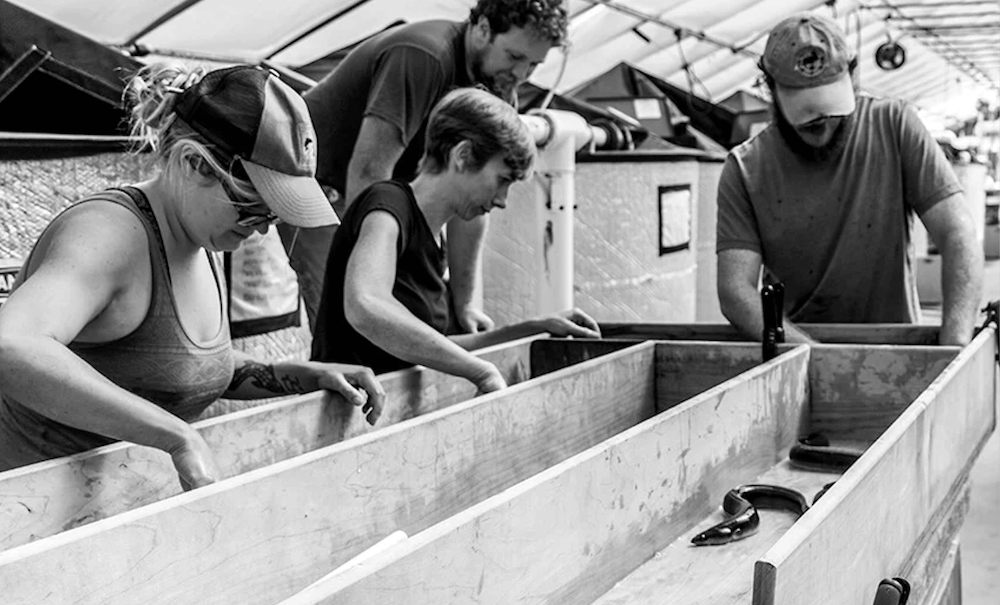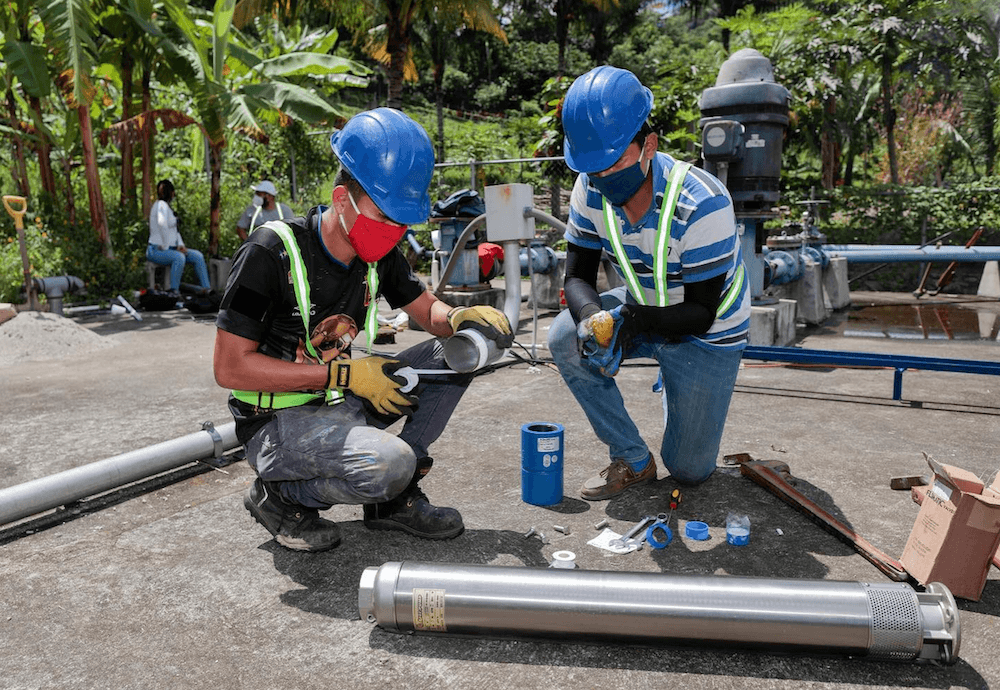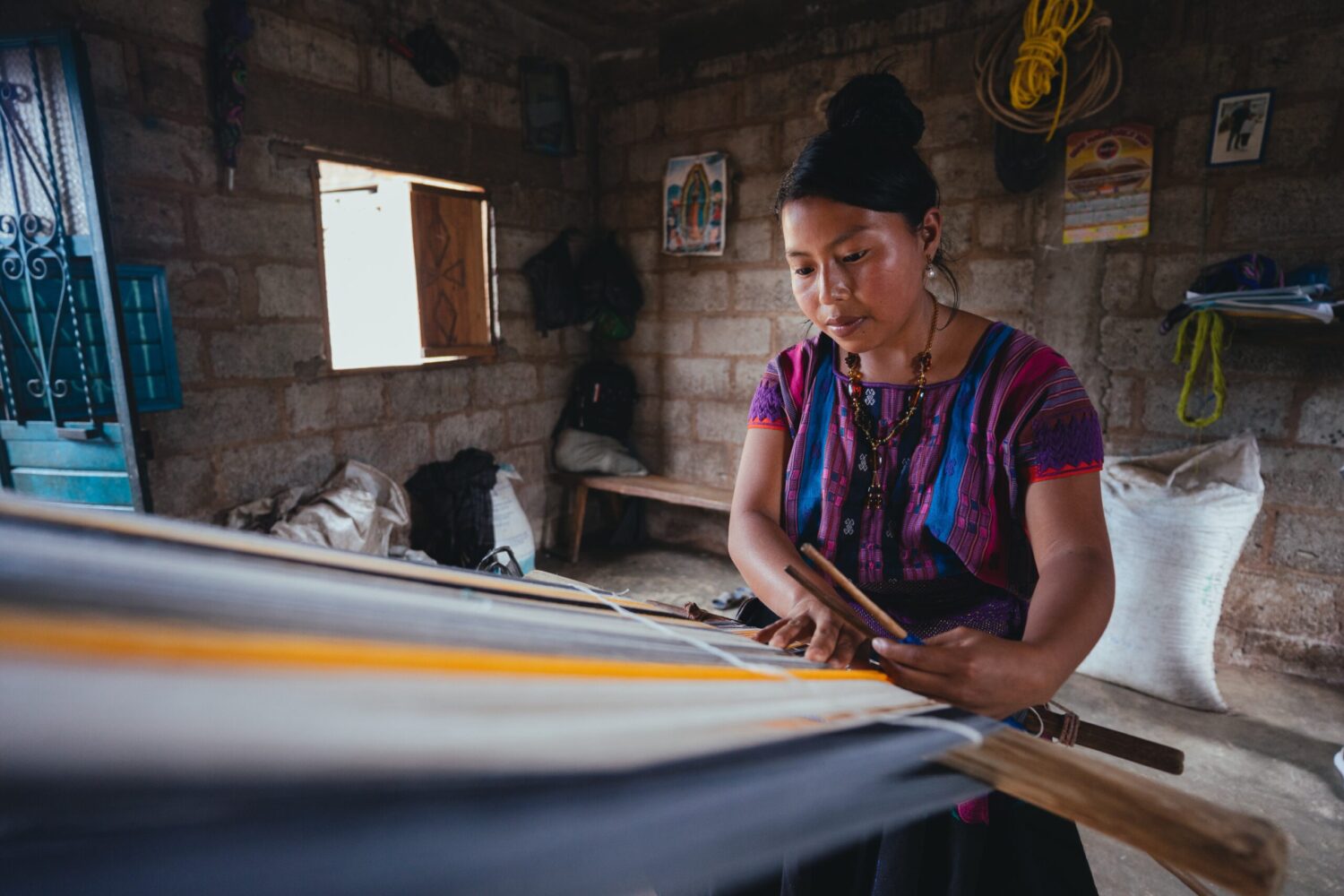ImpactAlpha, September 5 — It’s just as hard to raise $10 million as it is to raise $100 million, or perhaps even harder. Given the tough economics of fund management, three of the funds in this month’s Liist are raising funds with hundred-million-dollar targets. Two of the funds are seeking up to $250 million.
The step-up in scale reflects the increasing sophistication of impact fund managers as well as the scale of the challenges they are addressing. Farmland LP is seeking to raise up to $250 million for its third fund to speed the conversion of commercial farmland to certified-organic production. West Potomac Capital is seeking a similar amount to strengthen the capabilities of mission-driven financial institutions driving financial inclusion and economic growth in minority and low-income communities.
A regulatory push can spur commitments. West Potomac, along with Center Creek Capital Group are raising capital from banks that can use the investments to satisfy their requirements for local lending under the Community Reinvestment Act.
Private equity’s invasion of the single-family rental market, which make up more than half of the rental market, have made many housing advocates skeptical that outside capital has a positive role to play in expanding the supply of affordable housing. Center Creek is making a plausible case that impact-focused strategies can deliver long-term affordability by renovating and rehabilitating existing single-family rental housing, known as naturally occurring affordable housing, or NOAH.
Also on this month’s Liist of impact funds currently raising capital: Black women-led Ditiro Capital is backing mid-sized businesses to support South Africa’s economic development and quality jobs, mainly for women. Philadelphia’s The De-Carceration Fund seeks up to $25 million for ‘justice tech’ startups to disrupt the US criminal justice system. Quona Capital is seeking $75 million to double down on promising portfolio companies using fintech to expand consumer and small business access to financial services in emerging markets.
(Disclaimer: The Liist and this post are based on available information, sourced by ImpactAlpha. Information has not been further reviewed by the managers nor verified by third parties, is not guaranteed for accuracy or completeness, and should not be relied upon as investment advice or recommendations. Nothing in The Liist, this post or on ImpactAlpha.com shall constitute an offer to sell or the solicitation of an offer to buy securities.)
Center Creek Capital Group
Washington-based Center Creek Capital Group is in the market with a $100 million fund to invest in the acquisition, rehabilitation and redevelopment of distressed single-family rental homes located in majority-minority and underserved US neighborhoods.
The closed-end private equity real estate fund, which has a hard cap of $150 million, is Center Creek’s third fund focused on improving the existing stock of naturally-occurring affordable single-family homes in the Southeastern US region. Naturally-occurring affordable housing, or NOAH, allows building owners to maintain low rents without federal subsidy or public funding.
Center Creek Housing Fund III has received $40 million in commitments from limited partners, including Capricorn Investment Group, Big Path Capital, Prudential Impact Investments, Regions Foundation and Truist. Center Creek offers a preferred equity tranche that allows banks and their community lending affiliates to invest with the fund at a discounted rate and satisfy their Community Reinvestment Act requirements.
With leveraged capital, the fund has invested $50 million to acquire and execute its value-add strategy on more than 230 single-family properties in Atlanta, Birmingham, Huntsville, Jacksonville and Raleigh-Durham. Families earning 60-80% of these areas’ median income will qualify for Center Creek single-family homes.
Upon signing a lease, tenants will have access to savings and credit counseling programs, backed with funding from Freddie Mac. The program is designed to create a pathway to homeownership for tenants by helping them put money towards a down payment. Through the counseling program, Center Creek reports tenants’ rent payments to credit bureaus to help them build credit.
Center Creek says more than 90% of residents in its affordable single-family rental homes identify as Black or Latino.
Contact Dan Magder for more information.
Ditiro Capital
Madichaba Nhlumayo launched Ditiro Capital in 2019 to invest in mid-sized businesses in South Africa’s high-growth sectors, including food-processing, infrastructure, manufacturing and healthcare. The goal is to drive economic growth and quality jobs through improved employment equity, workforce diversity and upskilling workers, particularly women workers.
The Johannesburg-based private equity firm is looking to raise up to 800 million rand (around $42 million) to acquire majority or significant minority stakes in a half-dozen businesses. Ditiro will write average checks of 70 million rand for businesses with sustainable yearly annual revenues of between 20 million to 40 million rand.
The Black women-led fund raised 360 million rand ($14.5 million) in a first close earlier this year from Thuso Partners and local pension fund managers Motor Industry Retirement Funds and Telkom Retirement Fund.
RisCura, a global investment and advisory firm, facilitated the commitments from the pension funds to the fund via a manager development program. Ditiro has a net target IRR of 20-25%.
Email the team for more information.
Farmland LP
Growing consumer demand for organically-grown food in recent years has overwhelmed the supply of organic cropland. Out of approximately 900 million acres of farmland in the US, only around 1.2% is certified as organic, according to the latest certified organic survey by the US Department of Agriculture..
San Francisco-based Farmland LP has deployed nearly $200 million since 2014 across two funds to acquire and convert conventional, chemical-based farmland to regenerative and certified organic farms. An inaugural $60 million fund acquired and converted the majority of a 5,000-acre portfolio, yielding a net post-tax IRR of 9% for investors.
“We have demonstrated that converting low-margin, high-volume farmland into high-margin organic alternatives generates substantial financial benefits while simultaneously promoting environmental stewardship,” Farmland LP’s Craig Wichner told ImpactAlpha last month.
Farmland LP has raised $50 million towards its third fund, which is targeting $250 million to acquire and convert farmland in northern California, Oregon and Washington. Farmland LP will also target new markets where it can benefit from economies of scale by owning at least $50 million of farmland in each market.
The Delaware-domiciled fund’s first deal is a nearly 1,200-acre farm in Oregon’s Yamhill County.
Get in touch via email.
Quona Capital
Since 2015, Quona Capital has carved out a niche investing in fintech companies that are working to create access to financial services for underserved consumers and small enterprises in emerging markets. The Washington, DC-based impact investor has deployed over $400 million across 72 companies, whose products and services have reached nearly 145 million people.
Quona is looking to raise $75 million for an Opportunity Fund to double down on existing portfolio companies at the post-Series B stage. The firm’s portfolio includes Egyptian lender Khazna, India’s enterprise tech venture Arya, and Brazilian neobank Neon. Quona’s portfolio last year generated more than $1.5 billion in revenues.
Email the team for more information.
The De-Carceration Fund
The War on Drugs was a term coined during the Nixon administration to describe harsher policing and sentencing for illegal drug use. Beginning in the 1970s, the War on Drugs “fueled a rapid expansion in the nation’s prison population beginning in the 1980s,” Chris Bentley of The De-Carceration Fund told ImpactAlpha. That has “led to a rapid expansion of companies trying to capitalize on this trend, driven by misaligned incentives and exploitative business models.”
The Philadelphia-based venture fund is one of the very few impact investors backing the growing ecosystem of ‘justice tech’ entrepreneurs aiming to disrupt the US criminal justice system. The fund will target companies focused on reducing the entry of individuals into the criminal justice system, as well as increase likelihood of a successful transition out of the system.
The De-Carceration Fund is looking to raise up to $25 million to back between a dozen or more early-stage justice tech ventures with initial checks of up to $500,000, as well as follow-on investments in select portfolio companies. More than half of the fund will go to justice tech founders of color.
Get in touch with Lawrence Williams for more details.
West Potomac Capital
West Potomac Capital, an Arlington, Va.-based alternative asset manager, is seeking to raise $250 million to back mission-driven financial institutions. MDFIs, as they are known, are key to expanding access to equitable banking, credit and other types of financial products and services to minority and low-income communities.
West Potomac will target women-owned depository institutions, US banks and credit unions, community development financial institutions and low-income designated credit unions.
West Potomac’s WPC Financials Impact Fund I will write checks ranging from $5 million to $20 million for up to 30 MDFIs. The fund is eyeing a first close by the end of the year, and is hoping to bring in commitments from banks and other financial institutions seeking to satisfy their Community Reinvestment Act requirements. The WPC Financials Impact Fund is designed as a public welfare investment fund to qualify for incentives for making public welfare investments under the Federal Reserve Act.
A separate deposit placement strategy aims to attract deposits from corporations, financial institutions, philanthropic organizations and other investors to MDFIs.
Contact Hana Freymiller to learn more.











